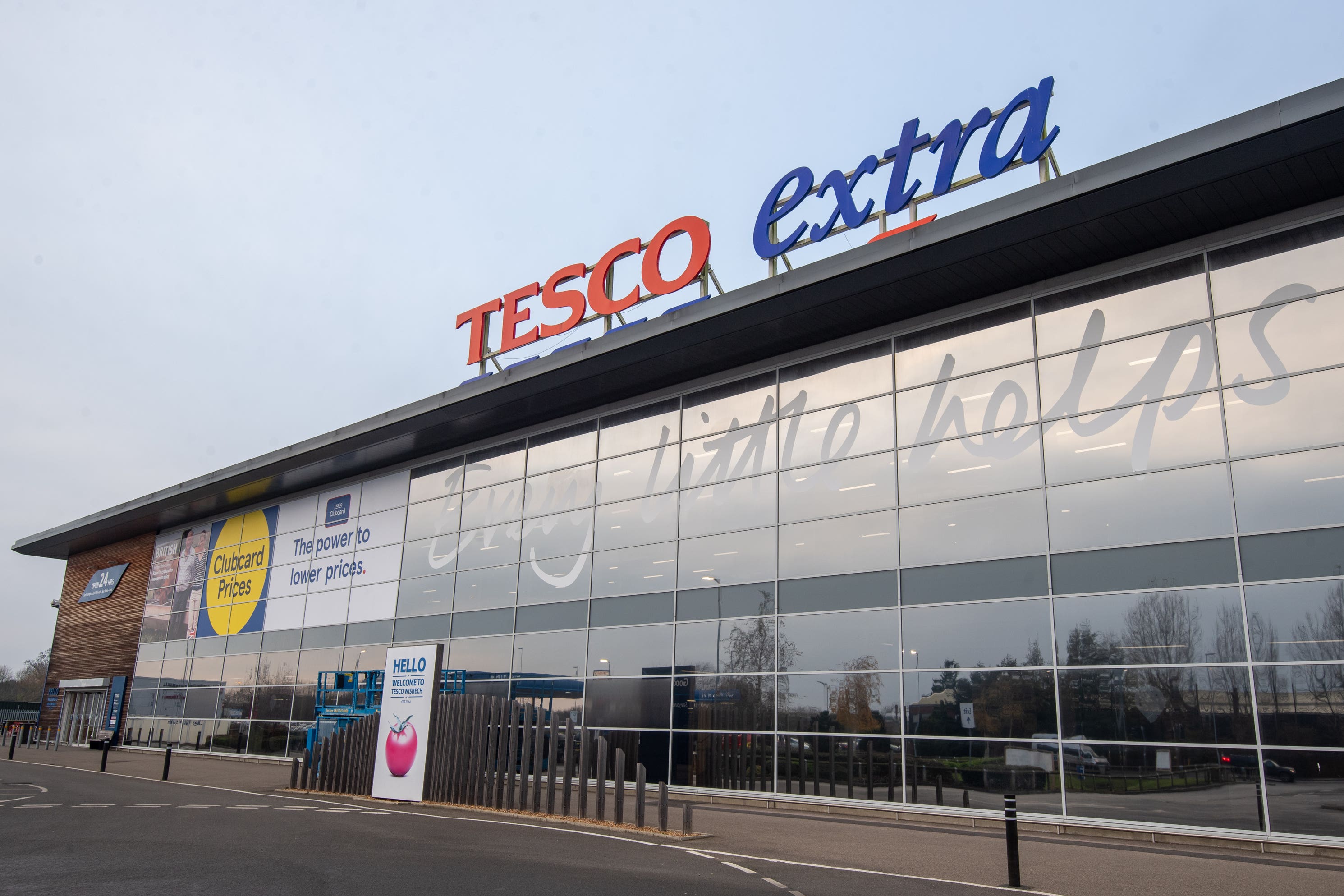Sticky inflation helps Tesco ‘rake in mountains of cash’ as profits jump to more than £2bn
The spike in profit earned the firm criticism from a union boss

Tesco said customers are experiencing “sticky” inflation on popular items such as chocolate, potatoes and coffee as it unveiled profits of more than £2bn.
The spike in profit earned the firm criticism for “raking in mountains of cash” from a union boss.
The UK’s biggest grocer also revealed it will hand out about £300 to each of its full-time workers in a “thank you” bonus following the bumper profits.
The retailer posted an adjusted operating profit of £2.83bn for the year to February, up almost 13 per cent on the previous year.
The firm said that, overall, price pressures have eased “substantially”.
Meanwhile, reported pre-tax profits almost tripled to £2.3bn from £882m a year earlier, when it had been affected by an almost £1bn one-off impairment.
Unite general secretary Sharon Graham accused the firm of “raking in mountains of cash while families struggle to put food on the table because of sky-high prices”.
The grocer said it saw demand grow from shoppers after investment to improve pricing, with about 4,000 price cuts over the past year.
Chief executive Ken Murphy said: “Customers are choosing to shop more at Tesco, which is reflected in growing market share as they respond to the improvements we’ve made to the value and quality of our products.
“Inflationary pressures have lessened substantially. However, we are conscious that things are still difficult for many customers, so we have worked hard to reduce prices and have now been the cheapest full-line grocer for well over a year.”
The company has been among grocers to invest heavily in price improvements as supermarkets face strong competition from German discount brands Aldi and Lidl.
Tesco has also benefited from a slowdown in the wider food and drink inflation, with the latest industry data from Kantar showing this slowed to a new two-year low of 4.5 per cent last month.
Mr Murphy said that Tesco is currently seeing inflation below this, as it benefits from its large buying power, but expects price rises to hold around their current level.
He said: “I see that stabilising, that kind of low single digit for the rest of the year is our planning assumption.”
The supermarket group also said on Wednesday that it would hand £70m to about 220,000 workers, worth roughly £300 per worker, due to the “strong” performance.
Tesco reported that overall revenues excluding VAT rose by 4.4 per cent to £68.2bn for the year.
The company said retail like-for-like sales grew by 6.8 per cent for the year, as it benefited from a return to volume growth in the UK and Ireland in the second half of the year as the easing of price inflation led shoppers to buy more products.
This offset a 17.2 per cent drop in fuel sales driven by falling petrol and diesel prices.
Julie Palmer, partner at business recovery firm Begbies Traynor, said: “This morning’s results point to a retailer that has the ability to not only navigate a tricky climate but also grow market share, despite stiff competition from the discounters.
“Clearly, the focus on delivering value for customers is paying off. Yet Tesco, like every other retailer, will be assessing the impact of the minimum wage increase, which should be manageable for a retailer of this scale but is yet another pressure to contend with in a volatile market.”
Bookmark popover
Removed from bookmarks